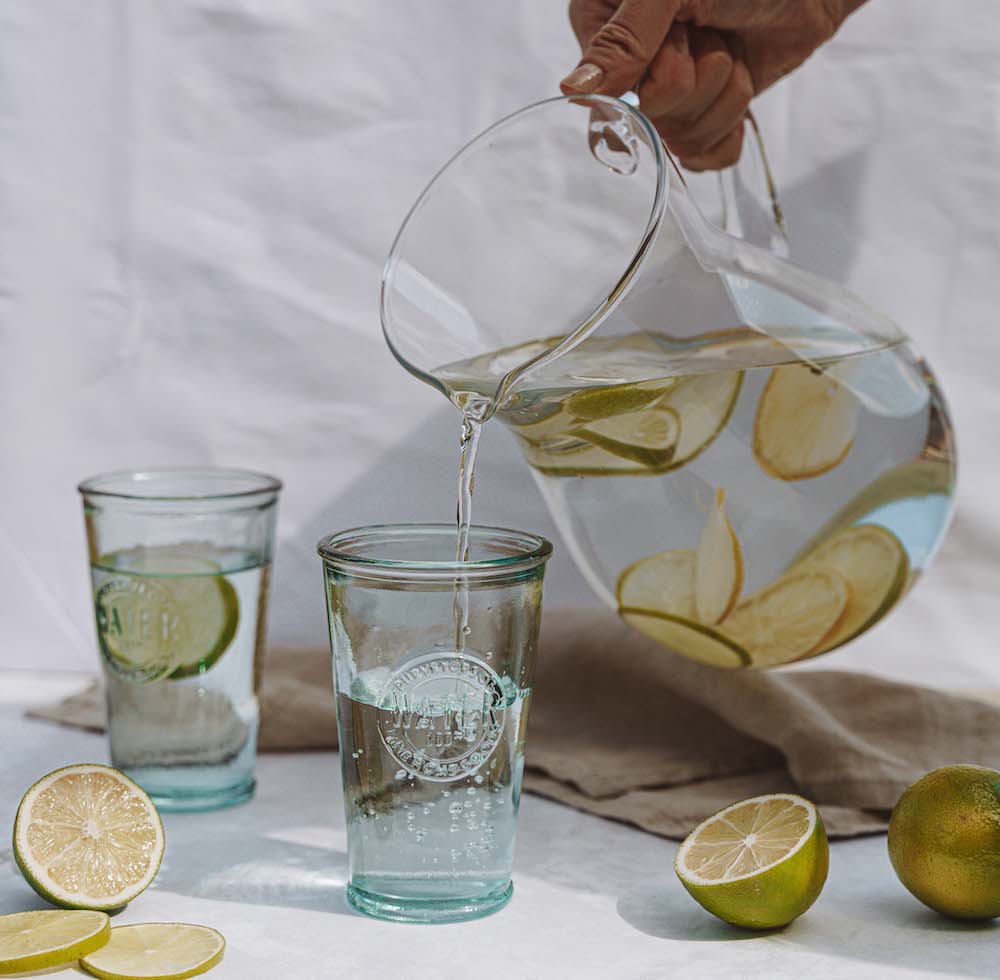The Christmas period is fun, wholesome and, of course, the most wonderful time of the year. However, it is also an extremely wasteful time of year which is why we want to talk about sustainable Christmas.
It is estimated that over 4.2 million Christmas dinners were wasted in 2014, alongside an average 4,500 tonnes of tinfoil and nearly 250,000 miles of wrapping paper. I will admit that I too can be quite wasteful at this time of year where buying beautiful, but extremely specific, wrapping paper for my friends is my notorious downfall. It is important that we all drastically change our festive habits as our Christmas actions have reproductions on our planet long beyond December 25th.
Putting in the effort to make your Christmas more sustainable will, I guarantee, give you that warm-fuzzy-feeling inside because you are doing something truly good and selfless for the world around you. Now, I am not suggesting that we can only purchase gifts that have been handcrafted by the human version of a woodland sprite who lives in the solitude of the Norwegian forests. Or, that we should make our Christmas lunches from left over potato peels and organically sourced lentils. By making even the smallest of changes we can begin to alter the culture of Christmas waste and make it a time of year we can celebrate with consciousness.
So, I want to list off a few small changes that you can make to your Christmas routine to make it more environmentally friendly and sustainable (and you will better for it).
Selfish Darlings Tips For A More Sustainable Christmas
1. (Public) Transport
First off, I want to start with the biggest and most stressful part of Christmas. The very part that dominates people’s thoughts and monthly budgets from early November through to the very-last-minute on Christmas Eve: shopping. It is no secret that the Christmas season gives massive boost to the retail sector, both online and in store, with people on the hunt for the perfect gift for their nearest and dearest.
However, these shopping trips mean that people travel far and wide in their cars for specific shops, products and offers. Whilst it may seem more convenient to take your car with you on these trips we have all felt the complete frustration of looping around and around a carpark at 9am on that last Saturday before Christmas, bumper to bumper trying to find the holy grail of a singular space. Besides these frustrations, all of these cars production a huge amount of air pollution and contribute to the effects of global warming.
Instead, this year take public transport to your shopping trips or, if you live close enough and are able to, just walk. By using the bus, train or metro you will be helping to reduce the waste that your individual car will produce. Alongside the environmental positives you will also avoid all the stress of having to deal with those drivers who get Christmas road rage.
2. Keep It Local (Where You Can)
There are two very good reasons to buy local or, at least, buy from independent businesses. The first being that big, multi-national corporations are not often known for their environmentally friendly ways – no matter how much they green-wash their logos. Big corporations ship specific products and materials from across the world into their stores, these journeys produce huge level of emissions and use up finite recourses such as oil and gas.
By shopping local you cut out the middle-man – with the middle-man here being planes, trains and automobiles – and reduce the impact your purchase have on the environment. Secondly, and this is less about sustainability as it is about capitalism, shopping local means that you give back money to the local economy. By buying your fruit and veg, Christmas cards or stocking-filler trinkets from local supplies you are helping local business owners pay their own bills, rather than lining the pockets of billionaires who will never even spend 1% of what they have.
3. The Three R’s: Reuse, Recycle and Regift
Some of the biggest waste that takes place at Christmas is done simply through buying things that we already have, or by throwing away things that are perfectly good.
-
Giftbags
Often the biggest culprit which end up in the bin is the humble giftbag, throw aside after holding just one bottle of wine or box of chocolates. Why do we feel the need to throw them away when they have held just one present in them, when they aren’t torn or broken? By putting all your gift bags aside for the year and reusing them the next I guarantee that you won’t need to buy any for a good while. In turn this will both save you money and reduce your waste footprint, by making use of something that is still perfectly fine.
-
Christmas Cards
The easiest way to recycle something unwanted after Christmas is by recycling Christmas cards. Now, I don’t mean literally scratching out the previous, loving message from your parents and rewriting it for Steve in accounts. Christmas cards often come with beautiful embellishments, glittery messages and snow scenes on the front. By cutting these off from the card you can reuse them to make your own Christmas cards the next year, besides being more sustainable it will be cheaper for you in the long run and also give someone close to you something very personal. Alternatively, you could use these cuttings as the tags for your presents, again extremely sustainable and personalised.
-
Presents
Regifting has a horrific social taboo that it is ungrateful and rude. However, as long you do not regift to the same person (or anyone close to them) then it is a perfectly ethical way to reuse something you either do not want or can’t use. I can’t count the number of times I have received bodywash sets, bath bombs and soaps at Christmas that I can’t use because I have sensitive skin and eczema. Rather than throwing them away I have kept them and given them to someone the following year who I know, in fact, will make use of the product.
4. Eating Vegan
Thanks to vegan activism more of us than ever are aware of the environmental impact of intensive farming and the meat industry. By cutting out meat you do your part to reduce the effects of greenhouse gases that are produced by farming. Now, I am not saying that you need to become a dedicated vegan overnight. I understand that for many the traditional Turkey is the absolute centrepiece of the Christmas experience. So, if that is something you simply cannot cut out then make changes elsewhere. As they say: every little helps.
For example, cut red meat (beef, pork and lamb) from your Christmas diet, as these animals produce high amounts of greenhouse gases such as methane which intensive farming only exacerbates. Or, alternatively, purposely make all the snacks and party food you buy vegetarian and vegan, automatically reducing your consumption.
Hopefully these tips have given you an idea of different ways you can have a more sustainable Christmas and remember, you don’t have to do it all, just adopting one of these tips is an amazing step forward in making your Christmas more sustainable and if you have any other tips on how to have a more sustainable Christmas this year let us know in the comments below!





